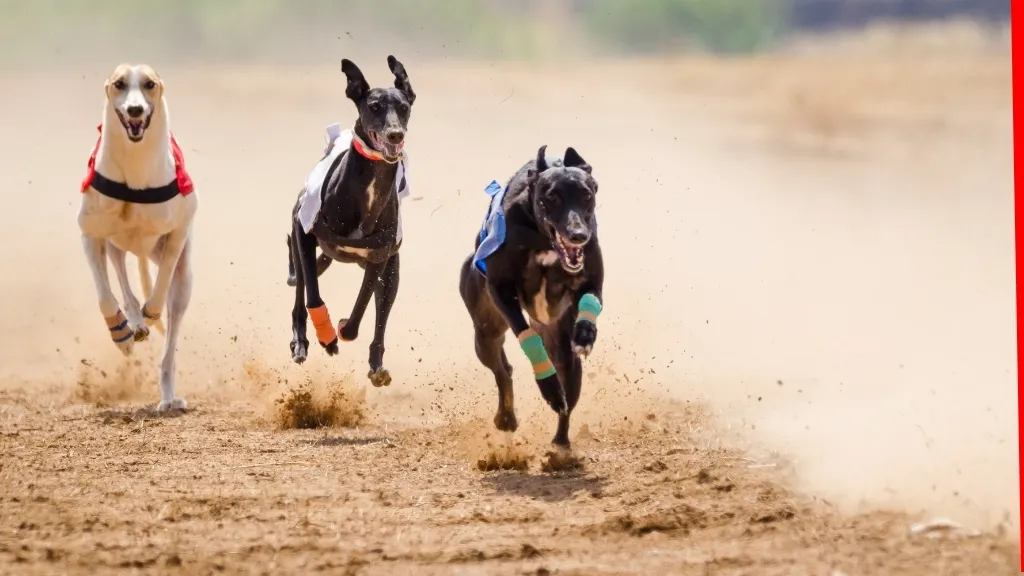
Wales officially put greyhound racing on a short leash, becoming the first UK nation to ban the sport. The Welsh Government announced they will implement the ban “as soon as practically possible,” marking a primary shift in both animal welfare policy and gambling regulation. But beyond the track, this decision is part of a wider trend where Wales is increasingly staking its claim as a leader in progressive legislation.
A policy with real teeth
Deputy First Minister Huw Irranca-Davies confirmed the ban, citing growing public support and cross-party backing. The decision follows a petition signed by 35,000 people and a government consultation that found strong public sentiment against the sport.
“I believe that now is the right time to move to ban greyhound racing in Wales. We are proud to be the first nation in the UK to do this,” Irranca-Davies stated.
He also noted that the government is setting up an implementation group to oversee the transition. “There will be work to do in ensuring the dogs, their owners, and those involved in the industry around the racetrack can wind down from this activity while still protecting the welfare of dogs currently within the industry, the local community and the local economy,” he told the Senedd.
Not everyone is rolling over for the decision. The Betting and Gaming Council (BGC) has condemned the move, saying it and its members are “deeply disappointed” by the decision.
“Greyhound racing is a working-class sport, enjoyed by thousands, and this draconian move will cost jobs and hurt the economy while depriving people of a long-established and legitimate source of joy,” a BGC spokesperson stated.
“BGC members are proud to support greyhound racing and contribute significant funds for the welfare of dogs. Last year alone, our members voluntarily donated over £7 million to the British Greyhound Racing Fund for the welfare of greyhounds.”
The Greyhound Board of Great Britain (GBGB) also criticised the decision. CEO Mark Bird stated, “The Welsh Government’s own Summary of Consultation Responses highlighted the lack of evidence to support the case for a ban on the sport.
“This Summary made clear there has been a coordinated campaign against licensed greyhound racing, seeking to drown out the voice of local people, including those whose livelihoods rely on the sport.”
He further accused the government of failing to engage with the industry, stating, “We have engaged in the consultation process in good faith as a regulator for the sport, but this statement is hugely disappointing and will do absolutely nothing to support greyhound welfare.”
One concern surrounding the ban is its economic impact on local communities. Closing greyhound tracks frequently leads to job losses for trainers, handlers, and track staff and reduced revenue for local businesses including betting shops. However, similar closures in other countries have shown that repurposing tracks for alternative uses can stimulate local economies.
For instance, in Scotland, a study found that converting a closed track into housing could generate £5.9 million in economic activity.
Meanwhile, greyhound racing has been in steep decline in the United States for decades. At its peak, there were over 50 tracks across 19 states; now, only two remain in West Virginia. The shift has been driven by declining betting revenues, increasing animal welfare concerns, and state-by-state bans. Many former greyhound tracks have been redeveloped into casinos or other entertainment venues, helping mitigate economic fallout while phasing out the sport.
Internationally, greyhound racing bans are becoming more common. New Zealand recently announced a ban, citing high injury rates and poor re-homing prospects. Vietnam’s last track shut down in 2023, while South Africa outlawed the sport as far back as 1946.
These examples show that Wales isn’t an outlier—it’s part of a growing global shift toward stricter animal welfare laws.
The ban isn’t an isolated move. Wales is making progressive legislative strides, from environmental protections to responsible gambling policies. Recently, the government unveiled a national strategy to protect dark skies, aiming to reduce light pollution, safeguard wildlife, and preserve natural landscapes.
At first glance, banning greyhound racing and curbing excessive artificial lighting might seem unrelated. But both signal a comprehensive vision for a more ethical and sustainable future, where human activity, whether in gambling, urban planning, or entertainment, is balanced against long-term welfare considerations.
And it’s not just Wales marking its territory in this area. Other nations, including New Zealand, have also made moves to ban greyhound racing, citing similar welfare concerns. Meanwhile, the U.S. has seen the sport phased out in most states, with only two remaining operational tracks in West Virginia. This comes as a new bill is being scrutinised in New Zealand that aims to amend the Racing Industry Act of 2020.
To prevent the industry from simply going underground, the Welsh Government will establish an implementation group to manage the transition. This includes plans for the welfare of retired racing dogs, ensuring they land on their feet rather than being left out in the cold.
The fate of Wales’ last remaining track, Valley Stadium in Ystrad Mynach, remains uncertain, with some calling for the site to be repurposed for community use. Similar track closures in other countries have led to redevelopment projects, with some former racing venues being converted into housing, parks, or new business spaces.
But one thing is clear—Wales isn’t just following the pack; it’s leading the way. In an era where animal welfare and sustainability face growing scrutiny, this move proves the country is ready to challenge tradition in pursuit of a better future.
And while critics may be howling over the decision, it is a positive step in the right direction for many campaigners.